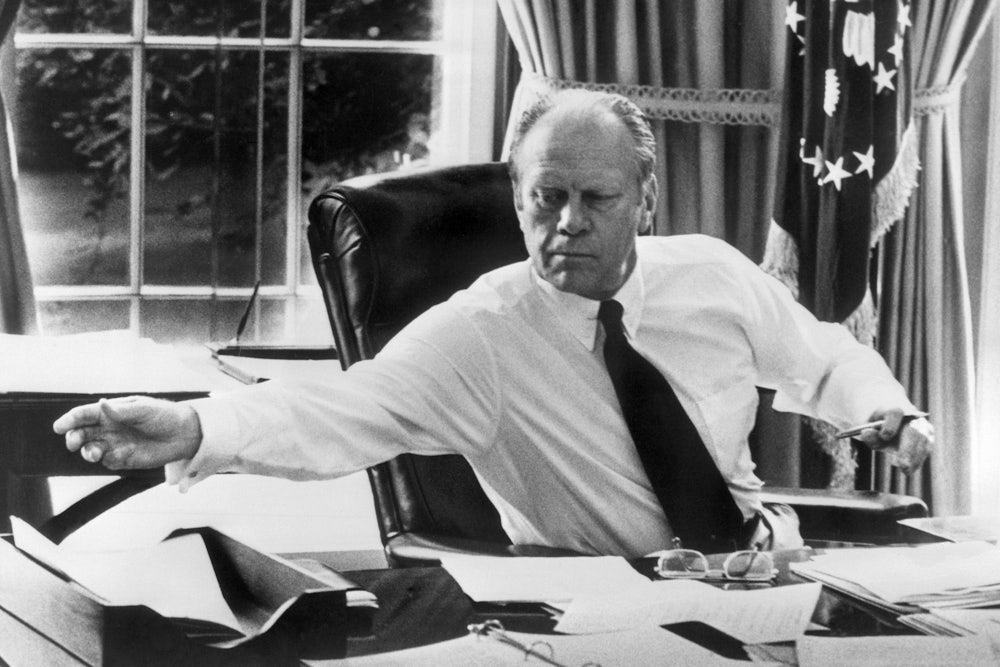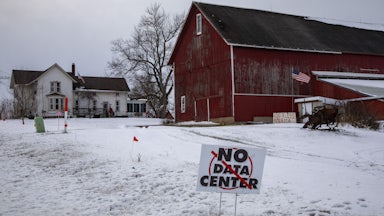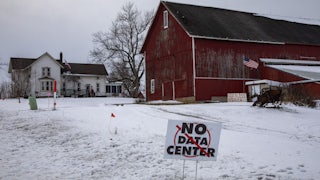Harvard economist Greg Mankiw, who was chairman of the Council of Economic Advisers under President George W. Bush, says Joe Biden’s $3.5 trillion reconciliation bill threatens economic prosperity. Mankiw doesn’t doubt whether, “from a narrow budgetary standpoint,” the United States can afford to spend $3.5 trillion. Unlike the reconciliation bill’s Republican opponents in Congress, he thinks we can. The problem, he says, lies in the “broader economic effects” of the bill’s economic redistribution.
Mankiw’s argument appeared Friday in that space in the dead-tree New York Times that used to be reserved for lead editorials. The Times has lately been substituting op-eds for editorials. It’s a policy I favor (and possibly helped inspire through something I wrote 16 years ago, though I’ve been known to overestimate my influence). Even so, it was jarring to see that honored space occupied by an opinion piece with which the Times editorial board so obviously disagreed. It didn’t make me feel unsafe, as the kids say; it made me feel useful, because now I will explain why Mankiw is wrong.
“The costs of an expanded welfare state,” Mankiw explained, “extend beyond those reported in the budget.” To elaborate, Mankiw cited the economist Arthur Okun’s 1975 book, Equality and Efficiency: The Big Tradeoff, which argued that too much government redistribution will compromise the proper working of the economy.
Okun was a leading light in the 1960s and 1970s—chairman of the Council of Economic Advisers under Lyndon Johnson, professor at Yale, which today sponsors an annual lecture in his name, and creator of Okun’s Law, a once-useful formula about the relationship between unemployment and gross domestic product—and his book was highly influential in its day. It remains a model of clear thinking and writing. But there’s a reason it’s slipped out of print. (A handsome fortieth-anniversary edition with an introduction by Larry Summers is no longer available from the Amazon Kindle or Apple Books stores.) Okun’s book has gathered dust because he wrote four or five years before the current trend began toward ever-widening income inequality. He never witnessed it because he died young (at 51), of a heart attack, in 1980.
Here’s how Okun describes income inequality in the U.S. It’s perfectly accurate—for 1975:
The relative distribution of family income has changed very little in the past generation. The nation took one big step toward equality during World War II; throughout the postwar period, the top income groups have received a substantially smaller share of total income than they had in the prosperous years of the twenties.
This was the historical period that economists Claudia Goldin and Robert A. Margo would describe, a decade and a half later, as the Great Compression. For half a century, U.S. income distribution either grew more equal or remained stable. What Okun couldn’t know was that this epoch was nearing its end. Starting around 1979, the Great Compression gave way to a period of steadily worsening income inequality that Paul Krugman named the Great Divergence (a phrase I borrowed for the title of a 2012 book I wrote on the subject). That’s the epoch we inhabit today, and it’s lasted almost as long as the Great Compression (which some call simply “the Golden Age”).
American life during the Great Compression had more than its share of problems. These included the worst economic depression in U.S. history; the deadliest foreign war in U.S. history; a string of horrific political assassinations; and levels of racism, sexism, homophobia, and assorted other types of bigotry—often expressed violently—that today would boggle the mind.
But it was also a period when prosperity was shared broadly among the (admittedly limited) group who participated fully in the economy. During this era, many mainstream economists came to believe that income inequality would, as a matter of course, continue to diminish forever. That was simply what happened in an advanced civilization. The writer Brink Lindsey deftly summarized contemporary nostalgia for this period in a 2006 New Republic essay. “The rival ideologies of left and right,” he wrote, “are both pining for the ’50s. The only difference is that liberals want to work there, while conservatives want to go home there.”
In his Times piece, Mankiw quoted Okun describing income redistribution as a leaky bucket. The more water you pour into a leaky bucket, the more water leaks out, and the more you redistribute income, the more inefficient the economy becomes. These inefficiencies, Okun writes, “include the adverse effects on the economic incentives of the rich and the poor, and the administrative costs of tax-collection and transfer programs.” Positioning himself between the liberal philosopher John Rawls and the conservative economist Milton Friedman, Okun could tolerate leakage in the range of 10 to 20 percent. In the Times, Mankiw didn’t say how much leakage he’d tolerate. Oddly, though, Mankiw said he supported the reconciliation bill’s expansion of the Child Care Tax Credit, which many congressional Republicans deem too leaky.
When Okun wrote Equality and Efficiency, he didn’t know—and couldn’t know—that the government would soon start redistributing income upward through diminished taxation, financial deregulation, and the regulatory dismantlement of labor unions. For a generation now, wages have stagnated at the median and spun madly out of control at the top. Workers’ pay no longer keeps pace with productivity increases. Low-wage jobs go begging, at least for the moment, and one possible explanation is that there are too many of them. Lousy, low-paying jobs have steadily been displacing middle-wage jobs for several decades. (Click here, and scroll to page 14 to see what I’m talking about.) The workforce failed to accommodate this evolution by becoming less skilled.
Is it inefficient for the federal government to provide benefits—decent health care, for instance, and childcare, and community college tuition, to cite three items in the reconciliation bill—that wages can’t buy? Perhaps. But for workers to pay their own way, businesses would have to pay them a living wage. Until then, expanding the welfare state doesn’t make the bucket leakier. It helps patch up the leak that was already there.








